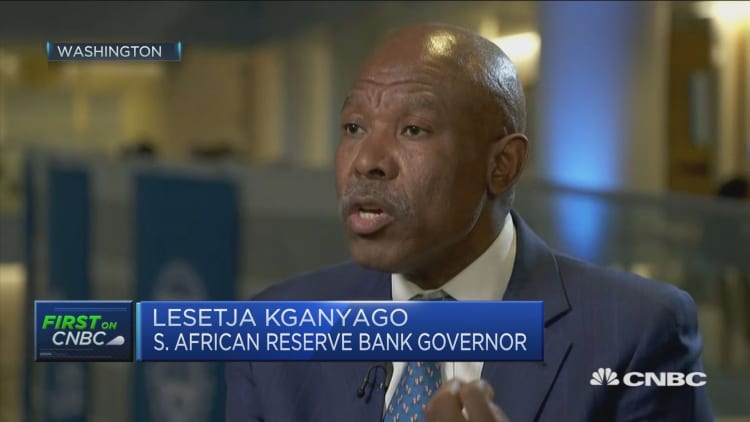Financial services firm Absa has sharply reduced its growth forecasts for South Africa as persistently weak business sentiment, electricity supply issues and a drought weigh on the economy.
In its first-quarter report, Africa's third-largest bank cut its full-year 2019 GDP (gross domestic product) growth forecast to an anemic 0.3% from the 0.6% expected in October 2019. The 2020 projection was reduced to 0.9% from 1.4%, with 2021 and 2022 predicted to level out at 1.2% as opposed to the 1.4% projected the previous quarter.
Following a broad-based GDP contraction of 0.6% in the third quarter of 2019, fourth-quarter data is due March 3 and is also expected to be weak, coming in at around a 0.4% expansion in part due to renewed power cuts.
Absa economists expect inflation to remain well contained at around 4.1% in 2019, rising to 4.4% in 2020, with traditional upside pressures like administered prices and a drought being quashed by demand weakness.

On January 16, the South African Reserve Bank (SARB) cut its repo rate by 25 basis points to 6.25%, surprising analysts, and Absa economists suggested that a divided Monetary Policy Committee, combined with low inflation and growth but substantial looming risks, made central bank policy decisions all the more unpredictable.
The bank expects rates to remain on hold for the foreseeable future, but with risks skewed in favor of further easing rather than hikes, as inflation could continue below the SARB's expectations.
The rand is also "overvalued," the report suggested, which together with the prospect of large capital outflows in the first half of the year could weaken the currency back up to round 15 rands per U.S. dollar.
Absa also anticipates more credit rating downgrades for South African sovereign debt with Moody's holding the country's last remaining investment-grade rating.
Amid ballooning debt and an expanding fiscal deficit, however, the ratings agency last November cut its outlook for South Africa from "stable" to "negative," and the bank said Moody's is "more likely than not" to act on this and downgrade the country to sub-investment grade on March 27.
Political fissures
State-owned energy utility Eskom continues to blight the macroeconomic picture. The government unveiled a program for its unbundling into three entities early last year, but Absa analysts suggested that this alone will not be sufficient to fix the electricity sector's challenges.
What's more, significant reforms of Eskom and other state-owned enterprises (SOEs) faces pushback, in part due to divisions within the ruling African National Congress (ANC), Absa economists Peter Worthington, Miyelani Maluleke, Sello Sekele and Andiswa Mdingi highlighted in the report.
"Load shedding is likely to continue and Eskom may need even more bailout money than that already allocated by the government. Structural reforms accelerated a little towards the end of last year, although progress overall has been slow, in part due to political contestation," the report said.
"In 2020, the energy sector reform is by far the most important structural reform to get right, but the auction of broadband spectrum is also key."
The pace of President Cyril Ramaphosa's reform efforts and the roll back of "state capture" will be key in the context of the factional battle within his party, with the mid-year National General Council a potentially pivotal moment for the reform drive.

